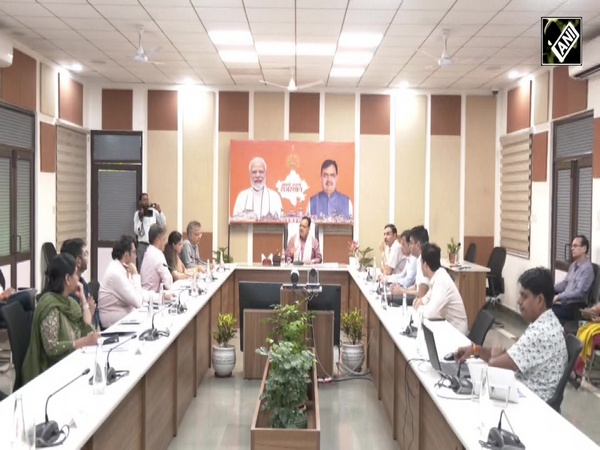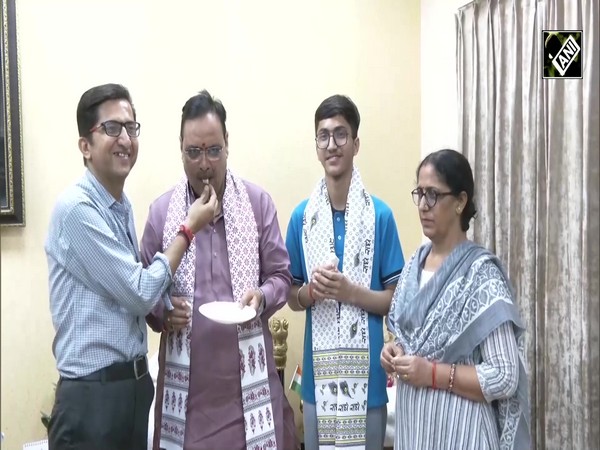
NITI Aayog's suggestion on tariff-free US apple import is death warrant for Indian growers: HP farmers
Jun 17, 2025
Shimla (Himachal Pradesh) [India], June 17 : A major uproar has erupted among apple growers in Himachal Pradesh, Uttarakhand, and Jammu & Kashmir following a recommendation by NITI Aayog to the central government to either significantly reduce or completely abolish import duties on agricultural produce from the United States, including apples and nuts.
Farmers' groups in the Himalayan states are furious, calling the suggestion an existential threat to their livelihoods.
Harish Chauhan, convener of the Himachal Pradesh Sanyukt Kisan Manch, in a conversation with ANI, issued a sharp warning and said that it will be a death warrant for apple growers.
"If the central government accepts this recommendation, it will be nothing less than a death warrant for apple growers in Himachal Pradesh, Uttarakhand, and Jammu & Kashmir," he said.
He confirmed that NITI Aayog submitted a report to the Union government two days ago, urging the removal of import tariffs on several agricultural commodities imported from the United States. These include chickpeas, pulses, apples, almonds, and walnuts.
"NITI Aayog has recommended that India should move toward free trade in these items as it would allegedly benefit the country. We strongly oppose this proposal. Apple producers from Himachal, along with growers from Kashmir and Uttarakhand, outright reject it," said Chauhan.
He added that importing Washington apples from the US already impacts the premium market for Indian apples.
"These imported apples directly undercut the premium price segment that our farmers depend on. Similarly, the almond and walnut markets of Kashmir are also affected. We reject the NITI Aayog recommendation in the strongest terms," he said.
The controversy gains further significance in light of the July 9 deadline, a three-month window granted by US President Donald Trump, concerning tariff adjustments between the two countries. Chauhan stated that this window is about to expire, and the Indian government must clearly explain what kind of negotiations it has conducted with the US regarding farmers' interests.
"We have received information suggesting that there is a plan to either reduce the import duty on apples to 15% or scrap it altogether. If that happens, horticulture and fruit production in all three states will be devastated," Chauhan said.
He urged the central government to resist pressure from the US in the ongoing trade discussions, emphasising that there is a need to relax farm produce and farmers should not be burdened.
"If changes must be made in trade agreements, they should focus on industrial goods like Tesla cars or Harley-Davidson motorcycles, not on agricultural and horticultural items like almonds, walnuts, pulses, poultry, and dairy. These shouldn't be sacrificed in the name of trade." He added.
Chauhan warned that if the government proceeds with this move, farmers across the country, not just in Himachal, will be forced to rise in protest.
Referring to recent diplomatic visits, Chauhan expressed concern that the visit of US Vice President JD Vance to India and the return visit by Indian Commerce Minister Piyush Goyal to the US may have involved negotiations that ignore the interests of Indian farmers.
"If Donald Trump's suggestion is accepted and NITI Aayog's recommendations are implemented, it will amount to a death sentence for us," Chauhan stated bluntly.
He further criticised the policy think tank, questioning its intent and understanding of the rural agricultural economy.
"NITI Aayog claims to formulate national policies. But what kind of policy is this one blind to the realities of Indian farmers and gardeners? Is it trying to strangle the livelihoods of 70% of India's population? Are we expected to be sacrificed on the altar of trade deals? We categorically reject this," he said.
The issue will likely snowball in the coming days, with farmer unions threatening statewide and national-level protests if the government proceeds with any tariff relaxations that affect Indian agricultural imports.





















